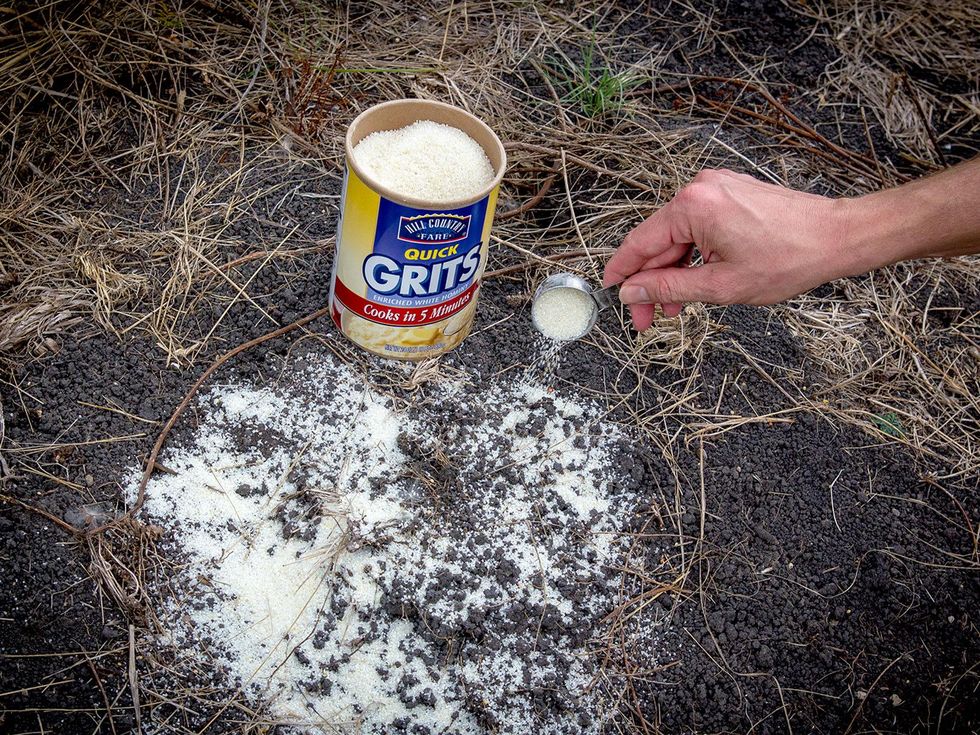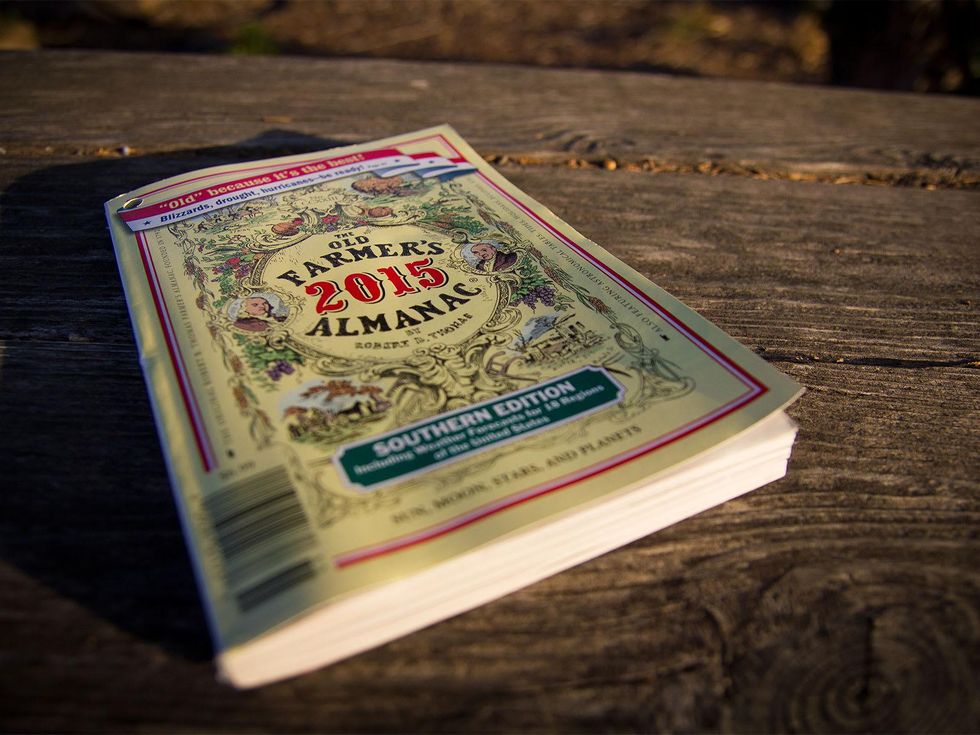The Farmer Diaries
Texas farmer debunks old wives' tales and scams that beguile organic gardeners
Organic gardens are cropping up in more and more backyards, with tomatoes, okra and squash all grown without chemical fertilizers or pesticides. Organic gardening allows anyone to grow safe, delicious produce and use resources at hand.
A neighbor's pile of leaves can be transformed into a rich, composted fertilizer. Water supply can be collected when it rains by placing an open barrel under the eaves of the house. Pests can be deterred from consuming your crops by planting appealing alternatives such as marigolds.
Organic gardeners seek alternative ways to get their job done. But that can leave them open to old wives' tales and scams. I've made a list of silly claims and fraudulent products that need to stop.
Cornmeal kills fire ants
Fire ants are a continual thorn in our side in Texas. Their bites are painful and leave ugly welts on skin. Questions on how to get rid of them are a common topic on gardening forums, and corn grits or cornmeal are frequently offered as a solution.
The posts claim that if you sprinkle corn grits on the mound, the ants will die in one to two days. Supposedly, the ants eat the grits, and because the grits are poor in nutrition, they'll starve to death. Another explanation is that the grits absorb water and cause the ant to explode.
The idea is ludicrous. Ants know what to eat, and only if we sneak undetectable poisons into their food will they die from what they ingest. This solution relies on its unbelievable absurdity to somehow make it believable.
CDs deter birds
Birds are a benefit to the garden because they eat insects and weed seeds. But some eat fruit and berries. To deter them, some gardeners hang old CDs in fruit trees or over berry vines. The thought behind this remedy is that the shiny CD surface will reflect light randomly and scare the birds away.
This CD trick may work for a day or two, but birds are intelligent and become accustomed to almost anything. Look at pigeons roosting on overpasses above highways, or grackles nesting in a traffic light, to see how birds will get used to almost any aversion.
A few CDs hanging over a berry crop may perplex birds briefly, but they'll get used to it. Besides, it's no more sparkly than a pool of water, and they'll readily drink from one without pause.
Predator urine repels small animals
Bottled predator urine is often suggested as a way to stop a rabbit from nibbling your cilantro or repel an armadillo who's rooting for grub worms in your raised bed. Spray it wherever you want to be rid of vermin, and the critters will vacate the perceived predator habitat.
But if you search Google for scientific studies on the efficacy of coyote, bobcat and wolf urine for repelling small animals and deer, many sources say it doesn't do much at all. Deer get used to anything. Rodents are more worried about the cover of vegetation or the brightness of the moonlight when they forage.
One study actually suggests that cat urine may spur sexual attraction in mice, which isn't exactly a way to reduce their numbers. By all accounts, I believe predator urine, at about $30 for a 12-ounce bottle, is nothing but a scam.
Old Farmer's Almanac
There's plenty of useful information in the Old Farmer's Almanac. The 2015 Southern edition costs $6.99. It had a good explanation on why quail are disappearing from the American landscape, and its piece on how weeds benefit the garden reflects my own sentiment about this misunderstood vegetation.
What's a little silly about the almanac is its weather forecast. It boasts an 80 percent accuracy, but that's to be expected with a forecast for Texas that states the obvious: "The coldest periods will be in mid- and late December, early January, and mid- to late January. The hottest periods will be in late June, early July, and early and late August."
In other words, winter will be cold, and summer will be hot. They do forecast a hurricane threat for July — not an actual hurricane, mind you, just a threat, as in one may or may not happen.
If there were any merit to the almanac's forecast, then the 2014 edition might have mentioned the drought that has gripped California, perhaps the most significant climate development of the year. But it didn't.
There's no harm in the almanac's forecasts. They're a little fun, even, like the predictions of a psychic. However, I think that the publication would be a better resource if it focused on planting schedules, organic gardening tips and contemporary farming trends.
Ultrasonic pest control devices
Ultrasonic pest control devices emit a high-pitched sound that's undetectable to human ears but like fingernails on chalkboard for rats and mice, and therefore drive them out of your house, garage or patio. Or so says the box.
The Federal Trade Commission has warned manufacturers and sellers of ultrasonic pest control devices since 2001 that they must back their claims with scientific evidence, which evidently none can do. One article from the University of Nebraska, called "Considering Ultrasonic Pest Control Devices? Save Your Money," says that these products do not work.
I believe organic living and sustainable farming are valid, but I try to separate fact from wishful thinking. The more we stick with what works and what science backs, the more we'll see a reward for our effort.




 Yonx Pizza soup in a bread bowl.Photo courtesy of Yonx
Yonx Pizza soup in a bread bowl.Photo courtesy of Yonx